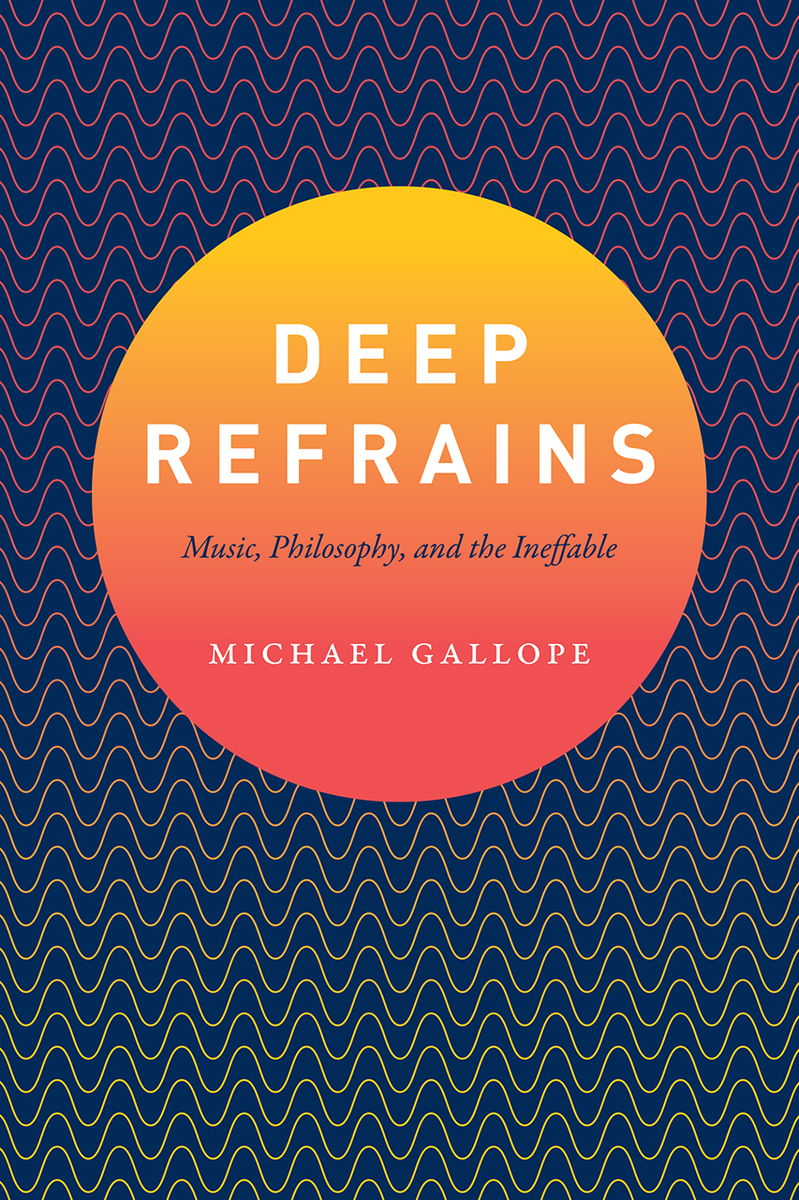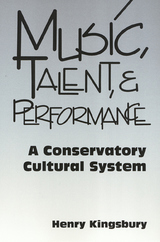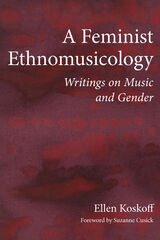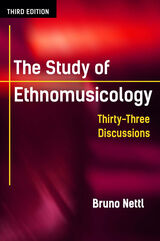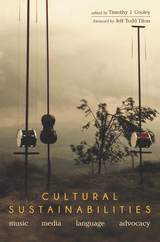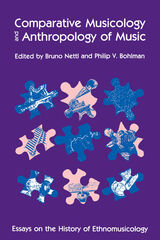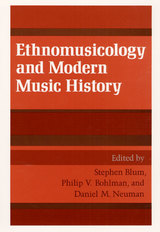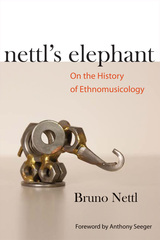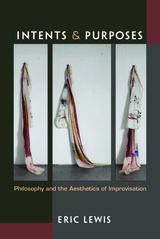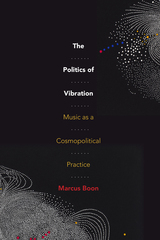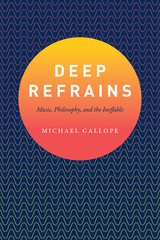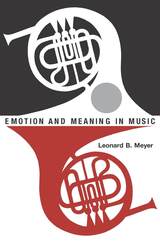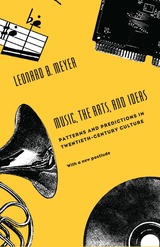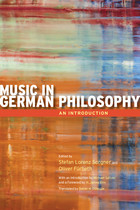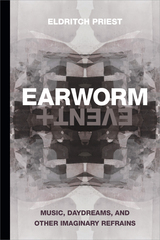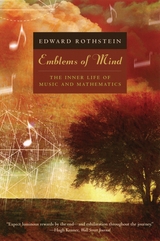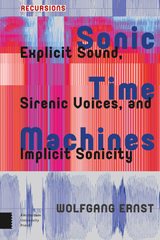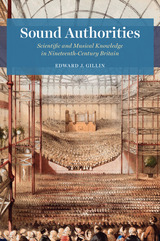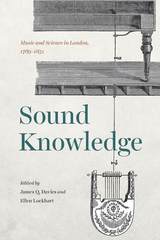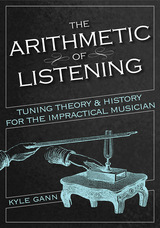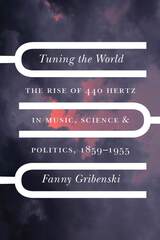Deep Refrains: Music, Philosophy, and the Ineffable
University of Chicago Press, 2017
Paper: 978-0-226-48369-6 | eISBN: 978-0-226-48372-6 | Cloth: 978-0-226-48355-9
Library of Congress Classification ML3800.G18 2017
Dewey Decimal Classification 781.17
Paper: 978-0-226-48369-6 | eISBN: 978-0-226-48372-6 | Cloth: 978-0-226-48355-9
Library of Congress Classification ML3800.G18 2017
Dewey Decimal Classification 781.17
ABOUT THIS BOOK | AUTHOR BIOGRAPHY | REVIEWS | TOC | REQUEST ACCESSIBLE FILE
ABOUT THIS BOOK
We often say that music is ineffable, that it does not refer to anything outside of itself. But if music, in all its sensuous flux, does not mean anything in particular, might it still have a special kind of philosophical significance?
In Deep Refrains, Michael Gallope draws together the writings of Arthur Schopenhauer, Friedrich Nietzsche, Ernst Bloch, Theodor Adorno, Vladimir Jankélévitch, Gilles Deleuze, and Félix Guattari in order to revisit the age-old question of music’s ineffability from a modern perspective. For these nineteenth- and twentieth-century European philosophers, music’s ineffability is a complex phenomenon that engenders an intellectually productive sense of perplexity. Through careful examination of their historical contexts and philosophical orientations, close attention to their use of language, and new interpretations of musical compositions that proved influential for their work, Deep Refrains forges the first panoptic view of their writings on music. Gallope concludes that music’s ineffability is neither a conservative phenomenon nor a pious call to silence. Instead, these philosophers ask us to think through the ways in which music’s stunning force might address, in an ethical fashion, intricate philosophical questions specific to the modern world.
In Deep Refrains, Michael Gallope draws together the writings of Arthur Schopenhauer, Friedrich Nietzsche, Ernst Bloch, Theodor Adorno, Vladimir Jankélévitch, Gilles Deleuze, and Félix Guattari in order to revisit the age-old question of music’s ineffability from a modern perspective. For these nineteenth- and twentieth-century European philosophers, music’s ineffability is a complex phenomenon that engenders an intellectually productive sense of perplexity. Through careful examination of their historical contexts and philosophical orientations, close attention to their use of language, and new interpretations of musical compositions that proved influential for their work, Deep Refrains forges the first panoptic view of their writings on music. Gallope concludes that music’s ineffability is neither a conservative phenomenon nor a pious call to silence. Instead, these philosophers ask us to think through the ways in which music’s stunning force might address, in an ethical fashion, intricate philosophical questions specific to the modern world.
See other books on: 1925-1995 | Adorno, Theodor W. | Comparative Literature | Deleuze, Gilles | Philosophy and aesthetics
See other titles from University of Chicago Press
